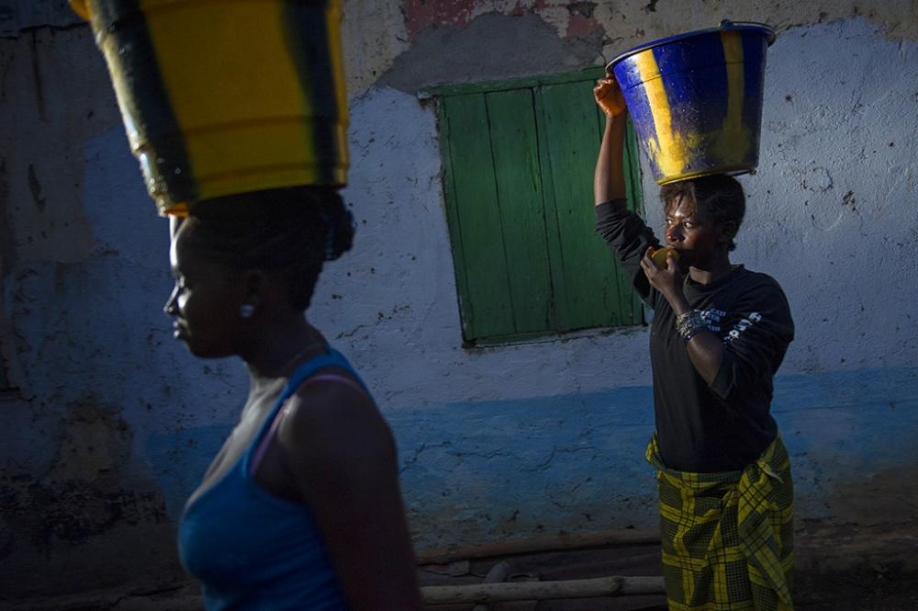
Empowering Women
Karen Kasmauski | Sudan, Malawi, Tanzania, Nigeria and Sierra Leone
Photographer: Karen Kasmauski
Exhibit Title: Empowering Women
Location: Sudan, Malawi, Tanzania, Nigeria and Sierra Leone
The photographs are taken over the last three years in Sudan, Malawi, Tanzania, Nigeria and Sierra Leone, documenting programs supported by local and international organizations addressing women’s issues and poverty.
This work illuminates positive examples of female empowerment in a variety of African cultures. African women in developing societies are more than capable of supporting themselves and their families if they are shown a path, supported with entrepreneurial opportunities and given the chance to learn. Women and girls who can to go to school, operate their own businesses and have access to health care are more likely to rise up to help themselves, their families and their communities.
Poverty lies at the core of many issues in developing countries and empowering women offers a powerful solution.
The challenge comes in finding ways to achieve that goal. Changing attitudes about the roles of men and women takes time and will be achieved not through a quick fix or a single campaign, but rather by shining a long and steady light on both the problem and the solutions.
I’ve focused my photographic career on examining the underlying similarities between people no matter where they live. I strive to portray people with the same dignity and respect that I would expect when being photographed. Although I often work in post-conflict situations I am continually amazed at the grace and perseverance in the faces of those who allow me to photograph them. I am often moved deeply by their stories and their efforts to achieve stable lives in very unstable situations.
While devastating images of death, dying and poverty have their place in the world, I am much more interested in the root causes of conflicts and the solutions. I believe that what actually motivates people to act for change is the discovery of commonality with those who are trying to recover from devastation—recognizing “that could be me.” I have found that no matter the place or the issue, human goals are the same. We want our children to grow up healthy and strong, to live in a safe community where all can work, play or attend school without fear of violence and not go to bed hungry. I strive in my work to show this commonality.
Poverty lies at the core of many issues that I encounter. I believe that empowering women solves many of those poverty related issues.
The challenge lies in finding ways to achieve that goal. As a journalist, I recognize that changing attitudes about the roles of men and women takes time, and will be achieved not through a quick fix or a single campaign, but rather through shining a long and steady light on both the problem and the solutions.
Much of my work has focused on illuminating such positive examples of female empowerment in a variety of cultures around the world and particularly in Africa. I’ve found that African women in developing societies are more than capable of supporting themselves and their families if they are shown a path, supported with entrepreneurial opportunities and given the chance to learn. Women and girls who can to go to school, operate their own businesses and have access to health are more likely to rise up to help themselves, their families and their communities.
Yet just it takes a village to raise a child, so too does it take the support of communities to enable women. Mothers who encourage their young sons to help out with chores and childcare can start the process of change. Fathers who teach their daughters independence, send them to school, and see their wives, as partners are critical to fostering changed attitudes.
The photographs are from a series of programs supported by local and international organizations that address women’s issues and poverty as whole village concerns, encouraging men and women to communicate and share their concerns with each other, girls to attend school and boys to be involved with their families.
CRS
Karen Kasmauski
www.kasmauski.com
Make Comment/View Comments